Meet Lindt Master Chocolatier Ann Czaja
After starting her working life as a medical researcher, Ann Czaja left the United States in the early 1990s and traveled to Switzerland intending to spend only one year there. Instead, Ann spent the next 14 years learning from the best chefs and honing her skills as a chocolatier in Zurich. Now back in the United States, Ann is a Lindt Master Chocolatier. She is passionate about creating quality chocolate without forgetting to have some fun as she works to develop and refine Lindt’s secret recipes.
At the 2016 Sweets & Snacks Expo, we were delighted to have a conversation with Ann about how she became a chocolatier, the world of Lindt, and what advice she can share with anyone aspiring to enter the profession.
How did you become a chocolatier?
Like a lot of people, I changed careers. I was in medical research. I wanted to go to medical school but it didn’t work out. I had the opportunity to go to Switzerland for a year. I came back 14 years later a pastry chef and chocolatier. I started working for Lindt 10 years ago.
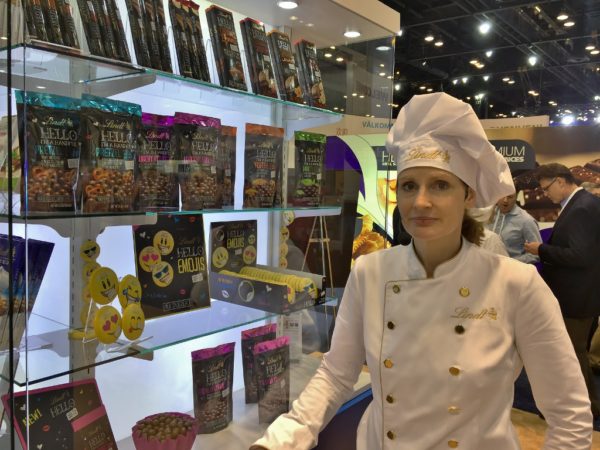
How did you make those first steps?
I was in Switzerland, and I didn’t know what to do work-wise. I had a friend who had a gourmet grocery and said we can use you in the kitchen. I said, I don’t know anything about kitchens. But I went down there, and the chef took pity on me because I’m hardworking. He said, come on, I’ll teach you some things. So he taught me how to start baking and making some desserts. I found that I really had a knack for it. So, I went and did a traditional Swiss apprenticeship in pastry and chocolate. It was very, very hard.
What made it hard? Was it a lot of hours? A lot of work?
Yes. I was working full time as a head pastry chef for a restaurant. The people had six restaurants. So, I was going to school one day a week and trying to get the chocolate work in, so it was a balancing act. But it worked, and I passed all my exams and here I am at Lindt.
What’s your advice for anybody who is interested in becoming a chocolatier?
Go work in the business. Find somebody you admire. If you’re a younger person trying to get into a culinary program, find somebody local and work with them. See if you like it. One of the biggest things I see is folks that are really enamored of the Food Network and watch it, or they look at the magazines, and they think it’s such a glamorous job. It is not a glamorous job. You start at the lowest of the low, often with jobs that are not so appealing. The pay isn’t excellent and you spend a lot of hours. So, go and work and see if you can still maintain your passion through all of that. People lose their passion because of the work. Go work. See if you like it. Try it out. Is it just going to be a hobby for you? If they remain interested, then pursuit it. Go with the right culinary programs like the Culinary Institute of America, CIA, is amazing.
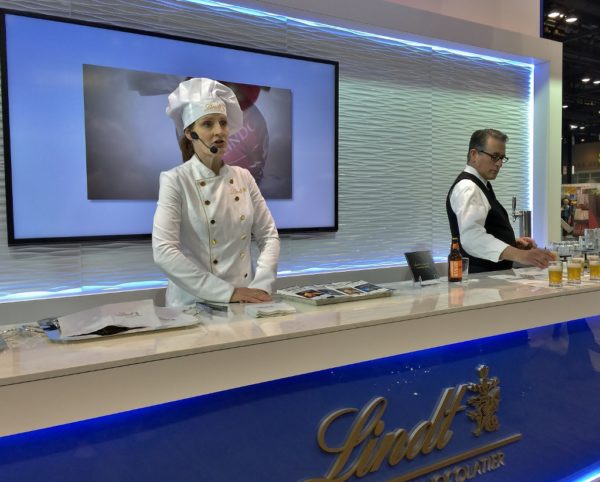
What is your typical day like?
My typical day is going into the lab, seeing what I have on the docket. What has marketing given us? We are a marketing driven, research and development department. And that’s worldwide. So, marketing will do the research and give us our projects. Sometimes their projects are very specific, like, we want a white winter truffle, so we’ll play around with different concepts. Other times, it’s like, we need something for Easter 2018, and I’ll ask do you want it milk, dark, or white? We get to use a lot of creativity. Or, sometimes, I’m doing some tastings or making hand samples to compare to production samples. It’s like a crazy machine with a lot of moving parts. The other thing I get to do is teach. So, I’ll go to teach a World of Chocolate class. Sometimes they are an hour, sometimes they are two hours for tastings. It’s fun.
How far out do you normally plan for new product releases?
Sometimes, it’s 10 months or a year. Sometimes, two years. There are times it can go real quick. For example, if I’m told that we need something for Target for Christmas, I’ll ask, Christmas next year? And the answer comes back, no, this Christmas. Oh, ok, so I’ll go into the lab and do that.
Does all of this happen in Stratham, New Hampshire? Is that where all the product is made, as well?
It is. That is where Lindt corporate is headquartered in the United States. We are about an hour north of Boston. We have a plant in Stratham where we roast our beans and make the chocolate liquor there. We put it into silos and we produce with it. We taste all of those raw materials. It really is bean to bar.
Has Lindt chocolate been made using the same techniques since 1845?
There have been some improvements in technology, just like technology 2.0. Rodolphe Lindt invented the conche. We still conche. But, it’s not a granite trough anymore that takes 3 days to get it where we need it to be. It takes 6 hours or 12 hours.
Are the recipes for the chocolate the same?
We have some recipes that are from back then. The company was started in 1845 by the Sprunglis. Lindt joined the Sprunglis in 1899, an with the merging of the two firms, Lindt gave his wonderful technology, the conche, which he invented in 1879. It’s just a really fun story.
To make a fine chocolate product, what’s most important? Is it the ingredients, the technique, innovation?
It’s everything. But, the chocolate has to be the protagonist. You’re not going to see us doing crazy flavors. We want something that helps to elevate the chocolate experience. We are an old brand and Switzerland would die if I said, hey, here’s your bacon bar. First of all, they’d probably fire me. We don’t do that. We ask, what will elevate the experience but 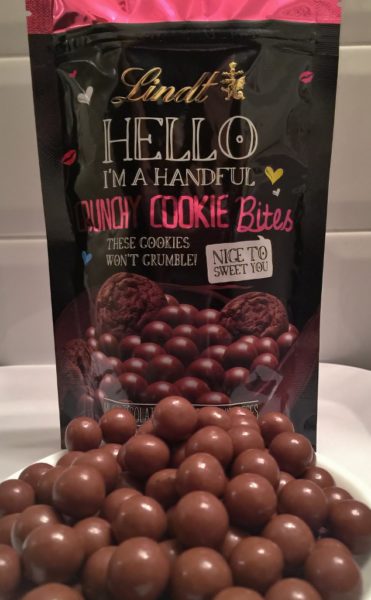 not overtake the chocolate? So, it is always about the chocolate. That’s first and foremost in your mind when you start this development process. Then it’s about coming up with concepts. Then we will go in and start making things. Does this work? Does it not work? Some really work and some don’t. Then we narrow it down. As we are going along with that process, it is still about the chocolate. It will never not be about the chocolate.
not overtake the chocolate? So, it is always about the chocolate. That’s first and foremost in your mind when you start this development process. Then it’s about coming up with concepts. Then we will go in and start making things. Does this work? Does it not work? Some really work and some don’t. Then we narrow it down. As we are going along with that process, it is still about the chocolate. It will never not be about the chocolate.
You joked about Switzerland firing you, but that brings us to ask you about the relationship between Europe Lindt and US Lindt.
It’s good. It’s really good.
Does one direct the other or is it a partnership?
We have two key franchises. There’s Lindor Excellence. That has to be approved by Switzerland. I think of them as the guardians of the brand — The Excellence Bar and the Lindor Truffle. We have more leeway when it comes to development for HELLO because HELLO is a really fun, trendy brand.
Is HELLO Lindt’s newest brand?
Yes. HELLO came from Germany and we are doing the development here. HELLO has panned products. We have pretzels, mint, and toffee and we’re adding this crunchy cookie bite. When we were coming up with that one, we presented something like 20 different concepts to marketing and a lot of samples that we made in the lab. They liked this one.
There are also chocolate bars and the HELLO Emojis. The Emojis are made in Europe.
Your inspiration for different concepts, where does it come from? Do you see something and you think that would be nice to try?
I look at other industries. For example, I’m inspired by what’s going on in dairy. Is there some kind of yogurt or ice cream? I’ll think, wow, that sounds like fun. Or, if I’m eating in a restaurant, I’ll think, I wonder how this will translate. Or we know that tea is really a hot thing right now, like macha. And, I’ll think about how that might translate into chocolate.
Are you involved in developing all the flavors?
Yes.
What are the newest flavors?
What we are previewing today is the Pumpkin Spice Truffle. Pumpkin is something we have been thinking about for quite a while. Everybody has asked for it in our retail stores. It is a milk chocolate truffle with natural pumpkin in it. It is a limited edition truffle that will be available for the fall holidays. We also have the HELLO Crunchy Cookie Bites, a panned product. And, we have a new bar, the Classic Recipe Wafer Bar.
Are there other new flavors coming from Lindt? Anything you can talk about
I can’t. It’s top secret. We’re always thinking. We’re always trying things and having a lot of fun.
It seems like you like your job quite a bit.
I love my job. Come on, I make chocolate for a living! It’s a really fun company. Having lived in Switzerland, I can bridge both American and Swiss cultures. I understand the Swiss passion for chocolate and the Lindt & Sprungli brand. When I returned here, I brought that passion and dedication to the product with me. We understand, this is very serious.
Chocolate has a rich cultural history in Switzerland. What do you see for American chocolate culture?
The chocolate culture in Switzerland is so deeply ingrained that even the grocery store brand will be really good. The Swiss will not put up with poor chocolate. In the 19th century they did so much innovation. Oh, gosh, Cailler started the first chocolate factory in Switzerland. Cailler, Suchard, Tobler, Lindt, Sprungli. These are all Swiss people. It’s pretty amazing. This little landlocked country. I went to Switzerland in the early 90s and when I came back in 2005, I noticed that Americans were starting to learn about premium chocolate. That’s what I love about America. We find something we like and we embrace it. I think we are finally understanding what chocolate tastes like. We’re getting there.
Share:


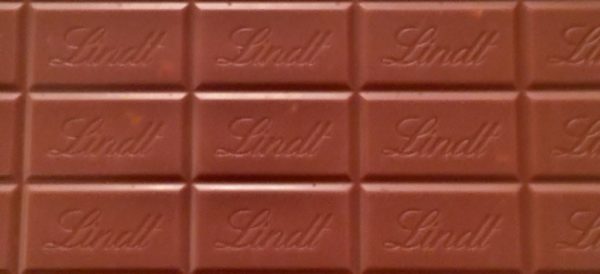
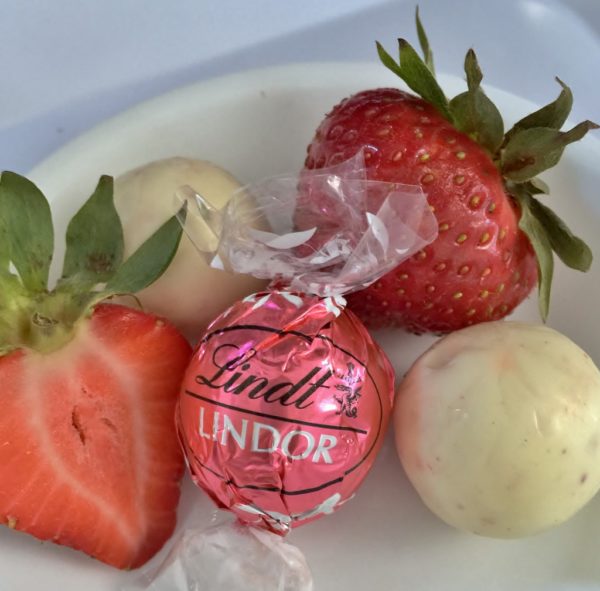
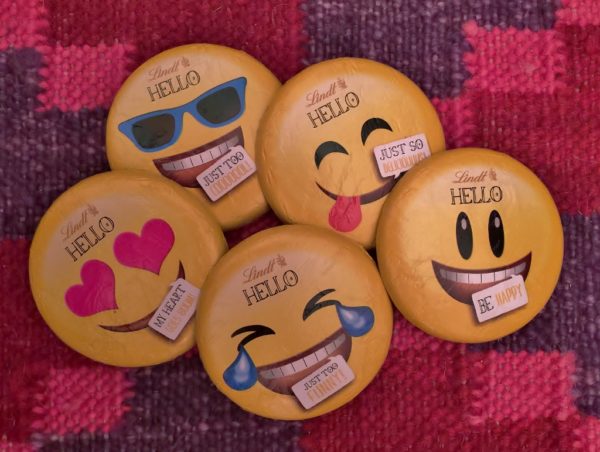
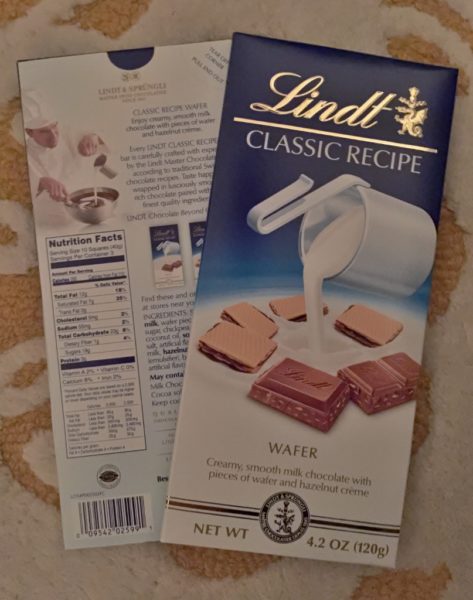
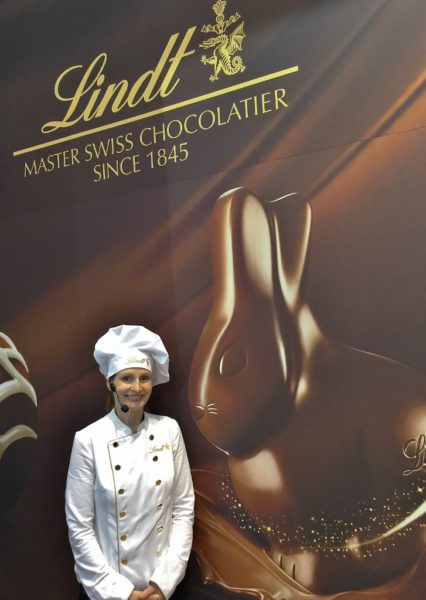


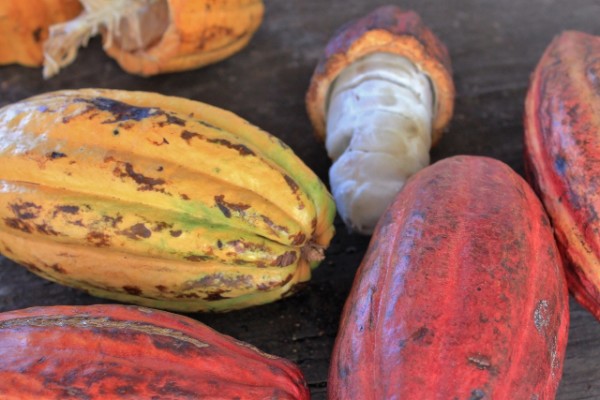


Comments